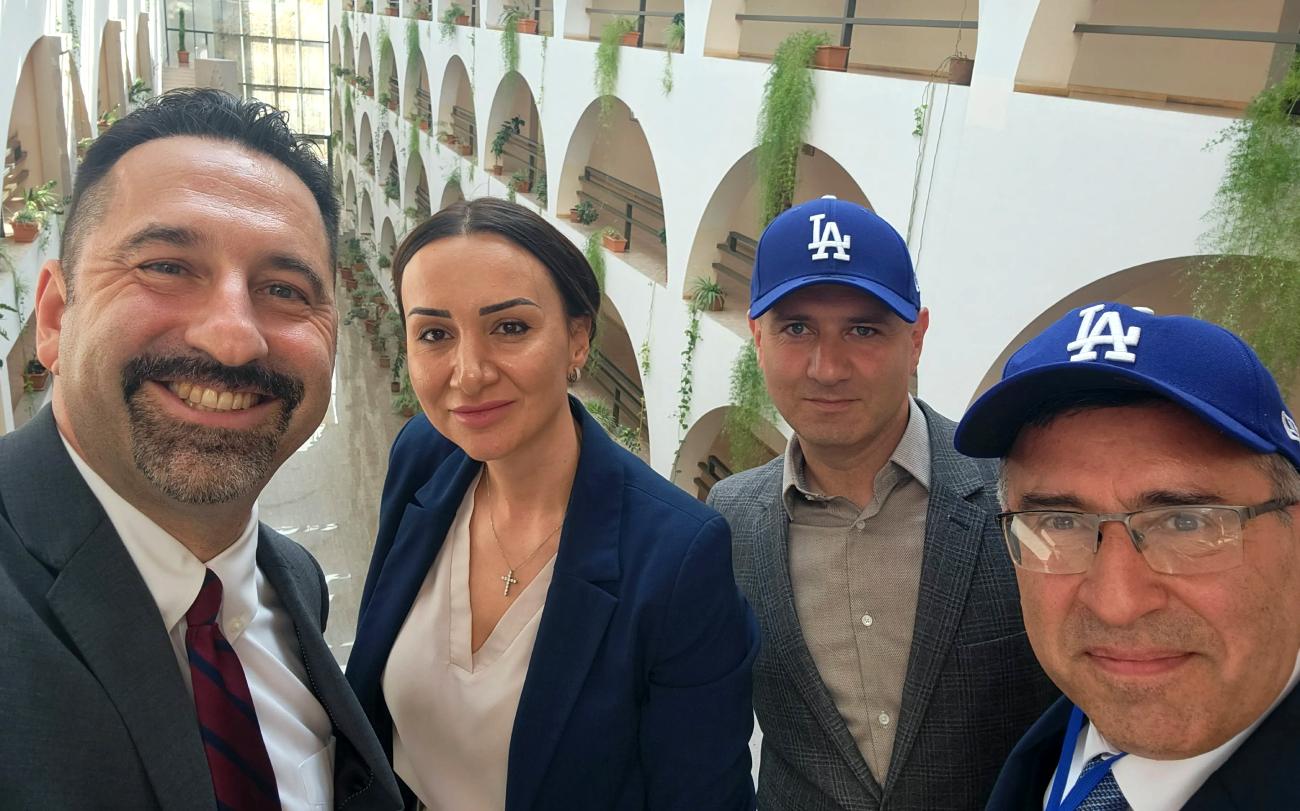


Last month, Ted Ross took an unusual trip.
The chief information officer of Los Angeles shook hands, handed out Dodgers baseball caps and expounded on the power of digital technologies to build positive relationships between governments and their populations. This was mostly familiar territory for Ross — who’s served the City of Los Angeles for two decades, including nine years as its top technology official — except that his audience was government leaders in the Western Asian country of Armenia.
As part of a four-day democracy forum hosted by the U.S. State Department, Ross and a small envoy that included Deputy Secretary of State Richard Verma traveled to the capital city of Yerevan, one of Los Angeles’ 25 sister cities, where they met Armenian President Vahagn Khachaturyan and the mayors and technology officials of other municipalities.
Ross told StateScoop the trip was a chance to bring Armenian leaders up to speed on concepts of digital government that are well-trodden in the United States, such as technology’s central role in fostering trust in government and keeping pace with the private sector’s digital services.
“Your digital platform very much represents how your people engage with their government,” Ross said. “But I think in a lot of governments, they think of digital and government as a completely separate conversation. So we found ourselves talking a lot about that: This isn’t just transacting, this is about a customer experience. The way they interact with your digital tools is often the way they think about you even as a government.”
Armenia has had a tumultuous history, in recent years weathering invasions and protests amid elections that are quickly reshaping its political landscape. Ross said leaders in Armenia, a country that borders Azerbaijan, Georgia, Iran and Turkey, are keen on boosting the public’s confidence in the government.
“Armenia is a fledgling democracy, former Soviet Republic, with strong connections to the West that’s increasing its connection to the West, but it’s certainly in a very tough neighborhood, so to speak,” Ross said. “… Generally speaking, they were very energized by the meetings and the presentations. They know or I think they started to understand that it’s not just improving something as esoteric as democracy. It’s improving their ability to get reelected, it’s helping tackle challenges that they have.”
Solving problems with technology and data science is the core conceit of the “smart cities” thesis advanced by technocrats around the country, often with support from Bloomberg Philanthropies. The problems Armenian leaders hope to mitigate with technology — such as traffic and crime, Ross said — are similar to those U.S. leaders are pitting their data against.
The trip wasn’t just talk. Ross said Los Angeles established a technology agreement with Yerevan that involves translating key technology policy documents — such as its digital strategy and IT strategic plan — into Armenian. With those documents in hand, Ross said he’s hopeful Armenian leaders will be primed for future conversations about technology’s role in improving government.
“We can then share our best practices across all Armenian cities, which means that when we have a follow-up visit, we expect them to have those documents,” Ross said. “… We can move to intermediate or advanced topics, because they can kind of get some of the gist of where we’re coming from.”
Corrected July 31, 2024: This story was updated to include the name of the correct State Department deputy secretary.